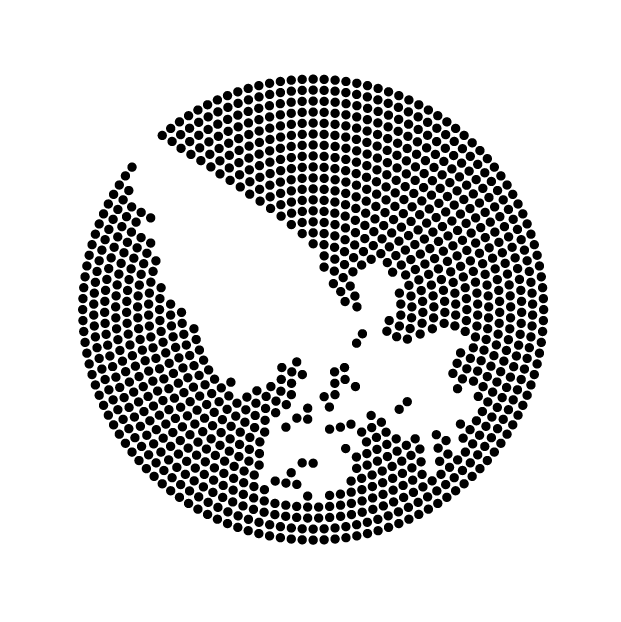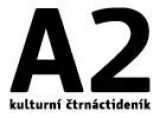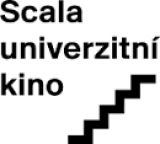2022/23
Season 48:
Closeness
August 2022
Hi,
we chose the topic of Closeness for our new 48th season in HaDivadlo. And to get closer to you, we decided not to introduce this season with a manifesto, but to write the introduction as a friendly letter to our close friends that we consider you, our audiences, to be. Our initial motivation behind choosing the topic of Closeness is our desire to get closer to each other: not only in terms of relationships inside the theatre but also closer to you– our audience members.
Closeness, the ability to empathise, mutual help and cooperation will be the key qualities for dealing with increasingly turbulent times full of multiplying crises all around us. But there is, of course, a metaphorical side to the notion, which we don’t want to deprive ourselves of. “Closeness” reflects our closeness to Ukraine that we have recently experienced after the Russian aggression. The context of Eastern Europe we perceived or wished to perceive in post-revolution times as something distant, is suddenly much closer. While preparing this year’s season, we felt the need to complete our education and read contemporary Ukrainian texts, because we thought that the prejudice in our society that often sees Ukrainians as unskilled workers and sometimes leaves them in disadvantageous conditions applies to us as well. The prejudice is reflected in the reality that we have never perceived Ukrainian literature as a relevant literary region to look for plays for upcoming seasons. Along with this initial assignment, we also decided from the start of our preparations to stage a Russian text along Ukrainian texts to prove that people can think freely even under totalitarian regimes. After long debates we came to a conclusion, that a balance consisting of one Ukrainian and one Russian text is too artifical. The current situation is not balanced, it’s very skewed, and there is simply no room for Russian texts at the moment. We resolved this dilemma by deciding to process our debates and moral discussions about Russian literature in an authorial form, to focus on a local perspective and the current relationship between Czech and Russian culture.
The mentioned motives serve as a topic for emerging authorial text Humanism 2022 by artistic director Ivan Buraj and Bohdan Karásek who already worked on the topic of climate crisis in last year’s authorial production called Ours. Bohdan Karásek is mainly a filmmaker and his films (his best-known film Karel, you and I from 2019) are characterized by informal expression and dialogue realism. This is inspirationally close to our efforts to further work with natural intimacy of a studio theatre in HaDivadlo because this closeness between actors and audiences is similar to the familiar closeness of movie cameras. This season’s production Humanism 2022 takes us on a holiday of former classmates from theatre school, directing, dramaturgy and production majors, who go together to Venice, the city of water, where ideals and highlights of Western culture meet the sea and murky waterways. Staying in an apartment rented on Airbnb, the main characters talk ethical roles of contemporary art, Russian culture and whether it is right to boycott Russian texts with regard to the current situation. One of the characters who is a director is going to stage Watermark by Joseph Brodsky, an essay on Venice and a military conflict. The director tries to defend open-mindedness that goes beyond the sides of a military conflict. However, can we maintain political neutrality and total open-mindedness in our work as well as life attitudes today? The protagonists reflect on the connection between honesty in artwork and honesty in personal life such as marriage and discover unexpected parallels between relational and political issue. Are we able to constantly live our truth? Is Europe experiencing moral decline and facing destructive chaos as claimed by Russian propaganda? Have we got something to be faithful to? Has our culture become an empty notion used to cover the grim reality of pernicious pragmatism? And what is an unnecessary luxury in a state of war? Are we at war? Humanism 2022 is a testimony of a time in which horror and comfort exist frighteningly close to each other. The play will premiere on 12th November 2022.
In relation to the questions linked to Russian aggression in Ukraine and its consequences, we decided to engage in documentary theatre and create a special project called Until the War Is Over / До кінця війни. It is a collage of personal testimonies of Ukrainian women and men who came to Brno and its surroundings because of Russia’s invasion in February. Directed by Max Nowotarsky, the play shows strong personal testimonies and visions of the future. The director who studied Theatre Faculty JAMU and is originally from Central Ukraine had dialogues with chosen performers for several months. Each has a very different story of how they got to the Czech Republic and to what extent they can continue the life they had at home. What they all have in common is the desire to integrate into a different, in many ways provisional, environment. This documentary scenic essay about integration of Ukrainian refugees and their everydayness will have a limited number of performances later this year due to limited performers’ availability – on 12th, 13th and 14th December 2022.
Contemporary Ukrainian novel Felix Austria by one of the most read Ukrainian author Sofia Andrukhovych explores closeness from a new and quite unexpected perspective: How to be close without destroying each other? How to find room for non-destructive conflicts? How to cope with closeness that has turned into dependence on the other person? And what about closeness that turned into a dangerous and toxic bond? Former HaDivadlo member Iva Klestilová and renown Slovak director, current artistic director of Municipal Theatre in Žilina and photographer Eduard Kudláč will help us find answers to all the questions in an authorial adaptation of the novel called Fire in Felix Austria. The original novel is set in 1900, in Halych, Austria-Hungary, given its timelessness, the authors of the play decided to set the play in the present. War-torn Ukraine is facing the perpetual question whether it is part of the West or the European Union and multinational environment is the source of constant inequalities and different living conditions of its citizens. The main characters are two women fused together by fate like “branches of a tree”. The parents of both girls died during a massive fire when the girls were very young. Their relationship and mutual dependence, however, cannot help them overcome their different positions – Stefanie is an Ukrainian maid in the family home of Adela, daughter of a Polish-German doctor. They live surrounded by characters from different social backgrounds (a sculptor, a pastor, an illusionist, a fishmonger…) that move through their episodic narrative and get emotionally infected. The play showcases a broad multinational society hovering between explosion and empathy when its parts meet and come into conflict. The adaptation dedicated to the exploration of contracts in living conditions and fickle character psychology will premiere symbolically on 24th February 2023, one year since the start of the ongoing war conflict.
In springtime, the topic of closeness will be shown from another angle – the proximity of the city of Brno and the protected landscape area of the Moravian Karst. The production of the same name exploring our notions of nature and the way these notions bend real nature is directed and written by Peter Gonda and his team, another Slovak author in HaDivadlo. The Moravian Karst is a sought-after area mentioned in countless legends and expert studies – 2021 marked the 100th anniversary since the start of speological activities in the area. The traditions and traces of human activity since prehistoric times are deeply imprinted in the underground landscape and wild forests, not only in the form of mining history and the development of the industrial revolution, but also in the stories of caving discoveries or landscape interventions. Questions regarding the meaning of words such as wilderness and protection can help us uncover what has become a romanticized fiction in our notions of landscape. We believe that theatre productions can be based on a landscape as well as on a literary text. Our project the Moravian Karst is an experiment examining whether we can have a dramaturgical line telling the stories of forests, rivers or mountains. The production made by director Peter Gonda, his regular dramaturge and music performer Adam Dragun, our dramaturge Anna Prstková and Matěj Sýkora, stage designer already known by HaDivadlo audiences from productions like Chevengur, Moby Dick, will be based on scientific evidence, historical facts, local folklore but also personal experience of proximity of the area full of not only natural wonders. The play will premiere on 28th April 2023.
This year’s season will also focus on bringing our colleagues’ views of theatre closer to the outside world. For that reason, we are preparing a series of masterclasses with guest artists who will share with you their methods of work and talk about their visions of contemporary and future theatre. In addition to the meetings with directors, you will have the opportunity to learn more about the work of Peter Machajdík (Fire in Felix Austria), internationally renowned Slovak composer, or Jonatán Pastirčák (the Moravian Karst), representative of the young generation and of the Slovak music industry, author of music for a number of audiovisual and stage pieces. These masterclasses will be complemented by guest productions by Eduard Kudláč or Peter Gonda, so that you can better understand and become familiar with the poetics of their work. It is important to us that our theatre is not only a place where new productions are born, but also a space for exploration, deeper understanding of the world and art. While working on a production, we experience a full immersion in its context and, by extension, get to know all the creators involved better. The longer we are part of HaDivadlo, the more we are aware of how important this immersive process is for the overall perception of a production, therefore, we want to share this with you.
One of the special efforts related to Closeness is to process this topic through co-participation in the creation of this season’s dramaturgy; we want this season’s dramaturgy to be open to your view – open to our audience. We are looking for tools that will enable you to become co-dramaturges of the upcoming season. There will be dramaturgical meetings open to the public where we will be happy to hear your input. More information will be provided later this season.
We continue to focus on dramaturgical introductions, post-play discussions and other accompanying educational activities at which we will be happy to see you. As an extension to specific plays, our A2 discussions will be held again this season so that you can enjoy an inspiring discussion about broader social contexts of our theatre work.
We are getting ready for the 30th anniversary of our home institution, the Centre for Experimental Theatre, that we are part of together with the Husa na Provázku Theatre and the Terén Performance Art Platform. In cooperation with the editorial board of CEDIT, magazine issued CET, we will organize a full-day programme called Theatre for everyone that will explore the possibilities and limits of contemporary cultural institutions. In the evening, a production portraying our institution will be performed, under Ivan Buraj’s direction, in the form of micro stories and and shared experiences of former and current employees from different positions and periods.
Let’s see what new horizons and qualities the new Season 48: Closeness brings about. We are looking forward to seeing you and meeting you because it is vital for our theatre’s work. Let’s get closer.
See you in HaDivadlo!
Humanism 2022 Until the War Is Over / До кінця війни Fire in Felix Austria The Moravian Karst (Czech) Dům kultury a konců










